Setting up zero-cost electricity at our cheap Japanese country house so it looks less haunted
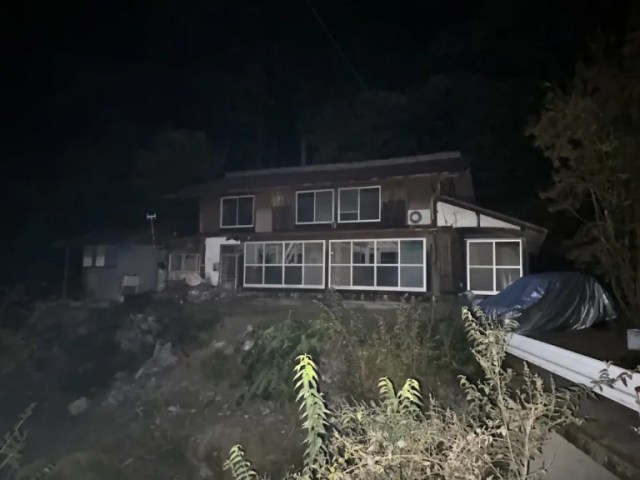
Let there be light at the SoraHouse!
Part of the reason we were able to buy a house in Japan for just one million yen (roughly US$9,100 at the time of purchase) is because of its location. The SoraHouse is located up in the mountains, far away from the hustle, bustle, and high prices of the big city. Sure, there aren’t any fancy restaurants or stylish shopping centers nearby, but when the SoraHouse gives us beautiful forest views, crisp alpine air, and even local wildlife visitors, what else do we really need?
Oh, yeah, electricity would be nice. As you can see in the above photo, once the sun goes down and darkness descends, the SoraHouse starts to look a little less “quaint country cottage” and a lot more “J-horror movie setting.”
Actually, this hasn’t been much of a problem until now. Since the SoraHouse still needs some restoration work before we start spending the night there, our visits have been in the morning or afternoon. With the days getting shorter as we head deeper into autumn, though, it’s starting to get dark on the mountain a little after 3 p.m., which is a pretty tight limit on how much time we can spend there.
As you might expect when our real estate budget was only one million yen, we’d like to keep our costs low. So rather than going through the cost and construction of connecting the house to the city power grid, we decided to create our own, one which will give us free energy after we’ve done the installation.
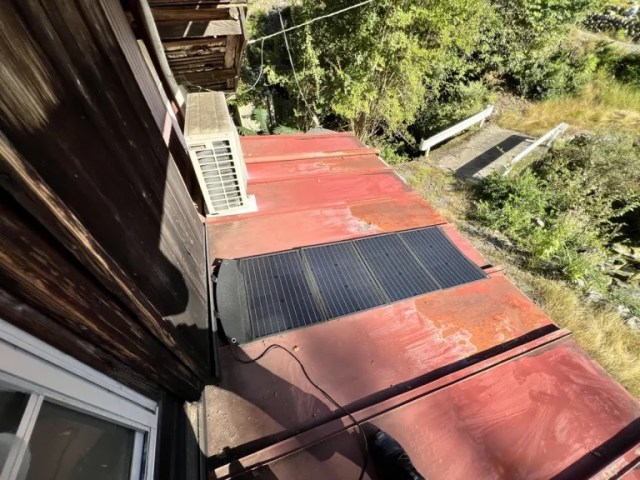
All we needed was a solar panel, a power station, and some cords. We started by taking the solar panel, which we got on Amazon Japan for 27,800 yen (US$185) up onto the eaves that extended between the first and second floors of the house. Laying it out in a spot where it’d get plenty of sun, we used lengths of wire to tie down its cloth binding to prevent the panel sliding off or blowing away.
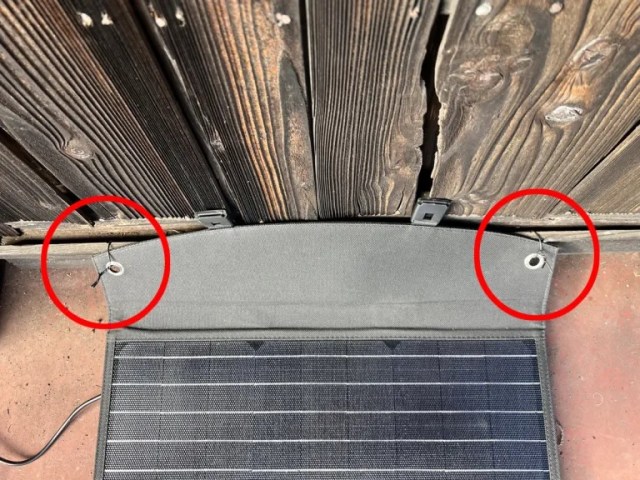
Then we connected the solar panel’s cord to a portable power station, which we’d also bought through Amazon for 19,800 yen.
▼ A portable power station is essentially a large battery that can provide power to multiple machines simultaneously.
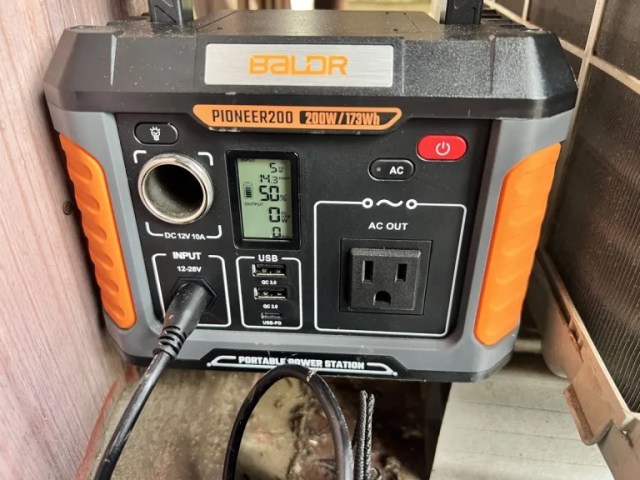
OK, that sorts out getting power from the sun to the solar panel and into the battery. Next we needed a power cord to get the electricity to our lights, so we picked one up at the local home center.
▼ Hmm…we wonder if this is a Japanese-made power cord…
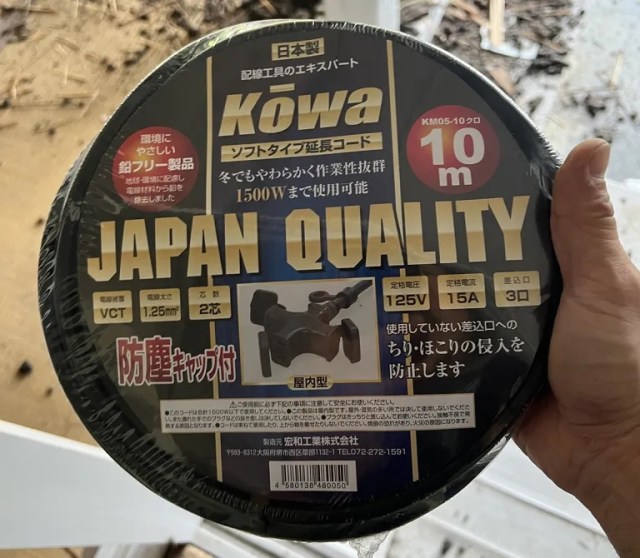
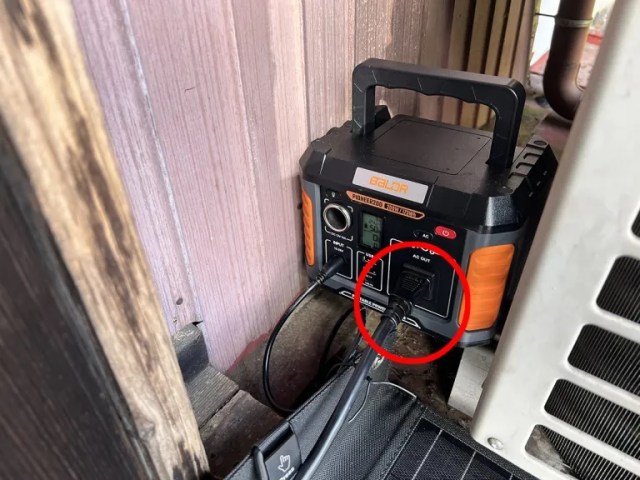
Rigging up interior lights turned out to be pretty easy, thanks to the traditional Japanese architecture of the SoraHouse. The building has high ceilings with exposed beams, so clamping on some camp lights was a breeze…
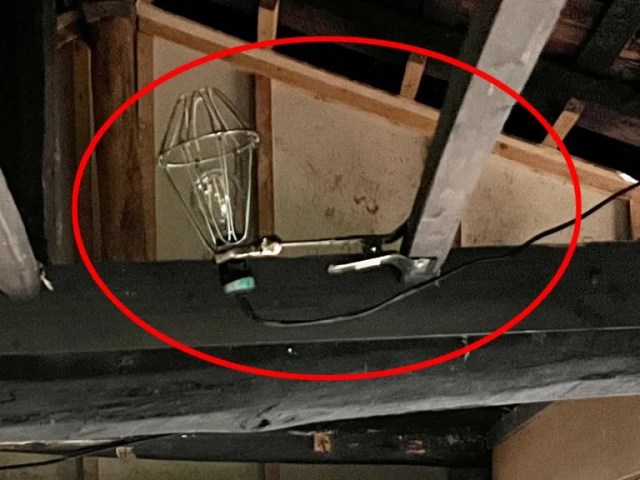
…and so was running cords to the lights from the power station while keeping them off the floor so no one would step on/trip over them.
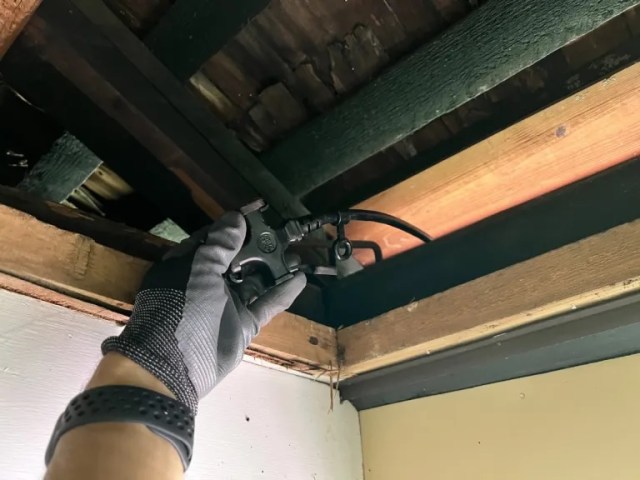
Once we had all that taken care of, our power station was up to an 85-percent charge, so we figured it was time to test our system out.

We flipped one of the switches, and…
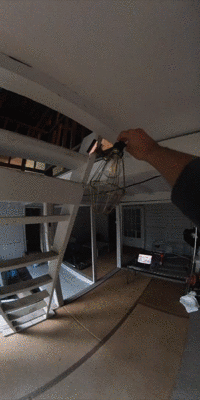
…we had light!
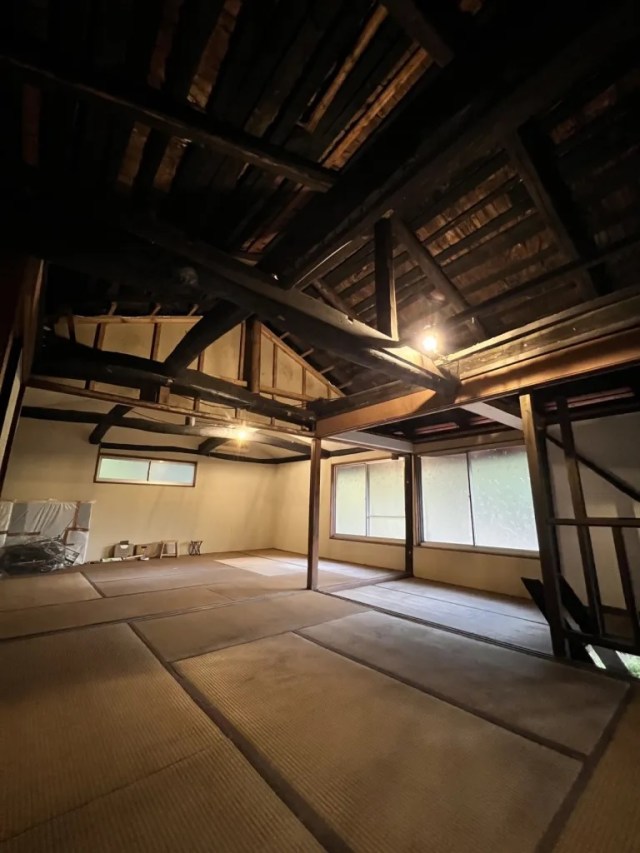
Every single light we’d set up was now bathing the interior in an inviting glow. With the added visibility, we were glad that since taking over the house we’ve been taking measures against bug infestation and wild animal poo.
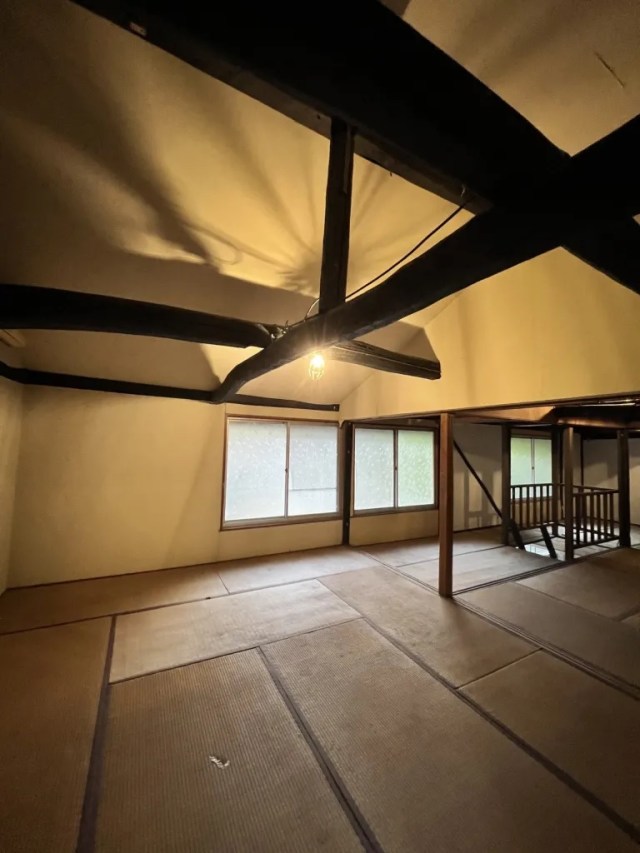
We’d started our test in the afternoon, since we weren’t sure if it was going to work and didn’t want to be trapped in total darkness if we were unsuccessful. Now, though, we decided to stick around until after sundown to see how the SoraHouse looked lit up at night for the first time.
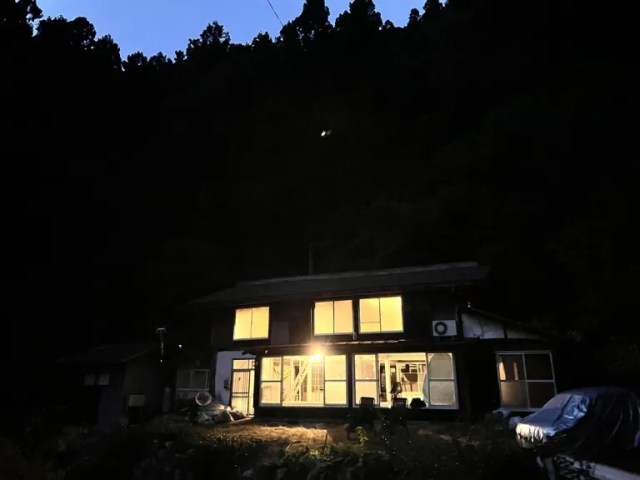
We’ve gotta say, it’s a definite improvement.
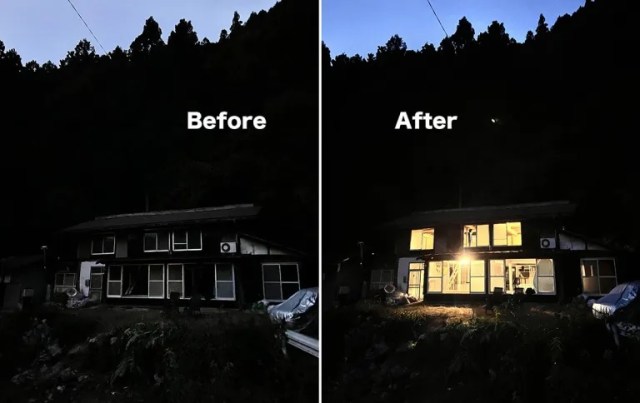
Even with just a few lamps here and there, there’s enough light to actually do things indoors at night now. Granted, it’s not a super-bright interior, but the current level of light lets us see what we’re doing while still retaining an appealingly rustic atmosphere.
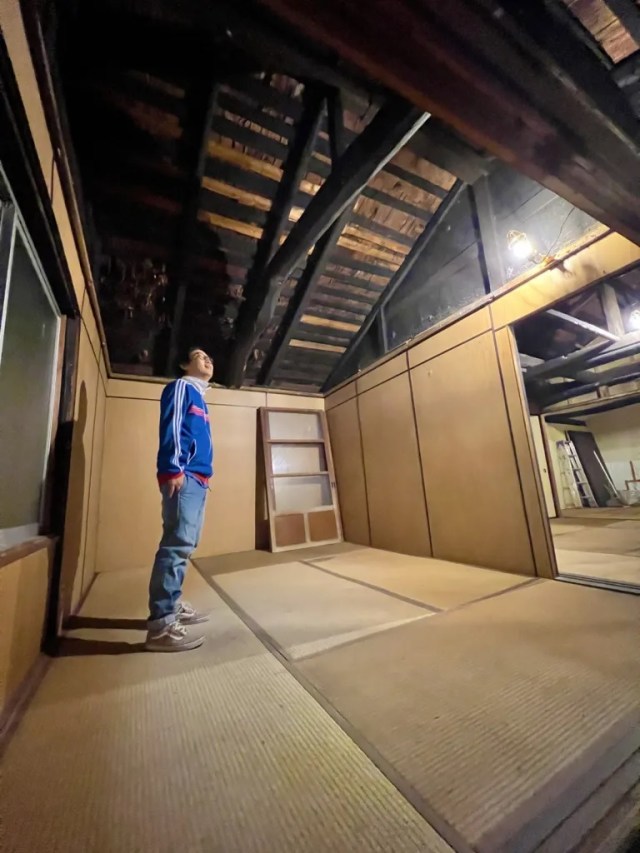
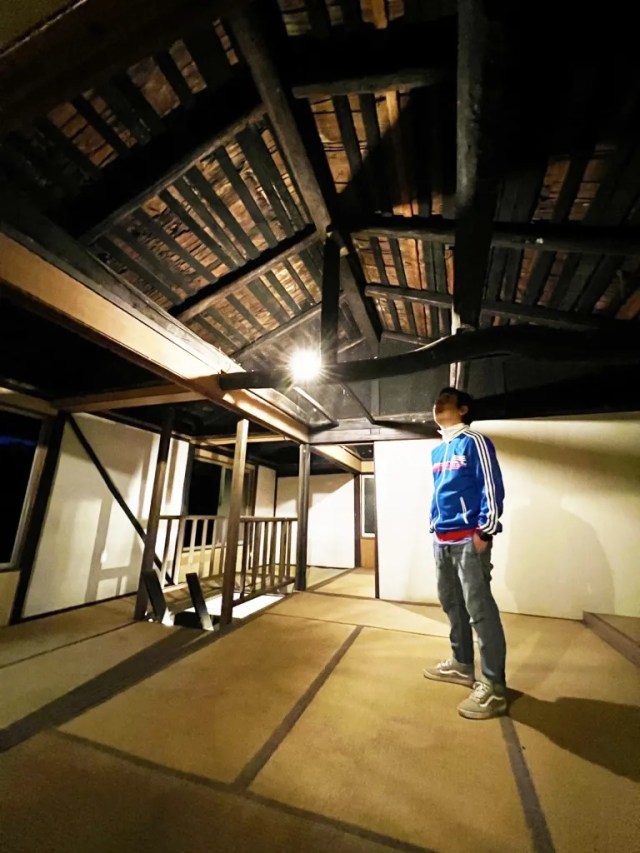
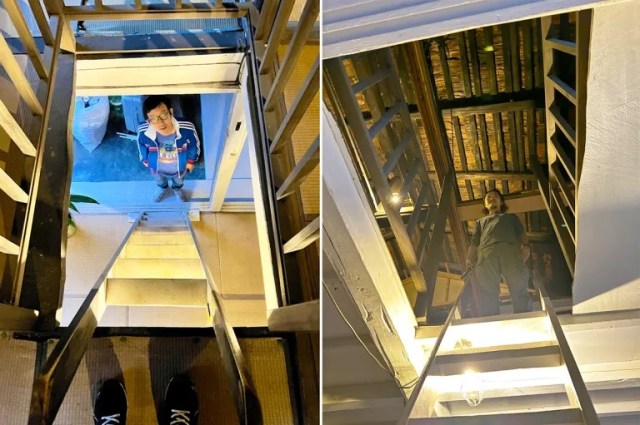
For roughly 50,000 yen (US$330) in equipment, the results aren’t bad at all, especially since the solar source means our electricity bill right now is nothing at all.
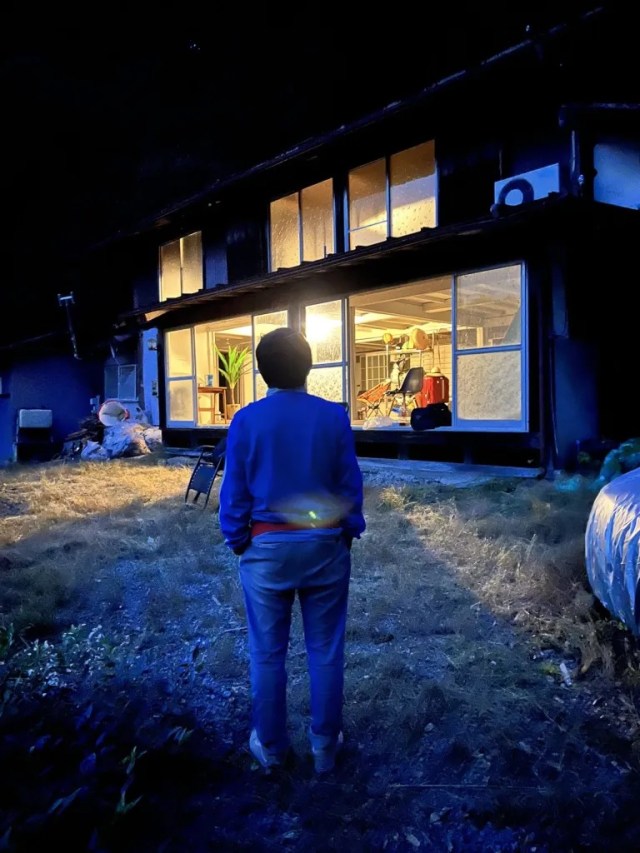
With this, we feel like the SoraHouse has taken a big step on the road to becoming part of civilization, and while there’s still a lot of work to be done, at least now we don’t have to get it all done before sunset.
Photos ©SoraNews24
● Want to hear about SoraNews24’s latest articles as soon as they’re published? Follow us on Facebook and Twitter!
Credit:

0 comments:
Post a Comment